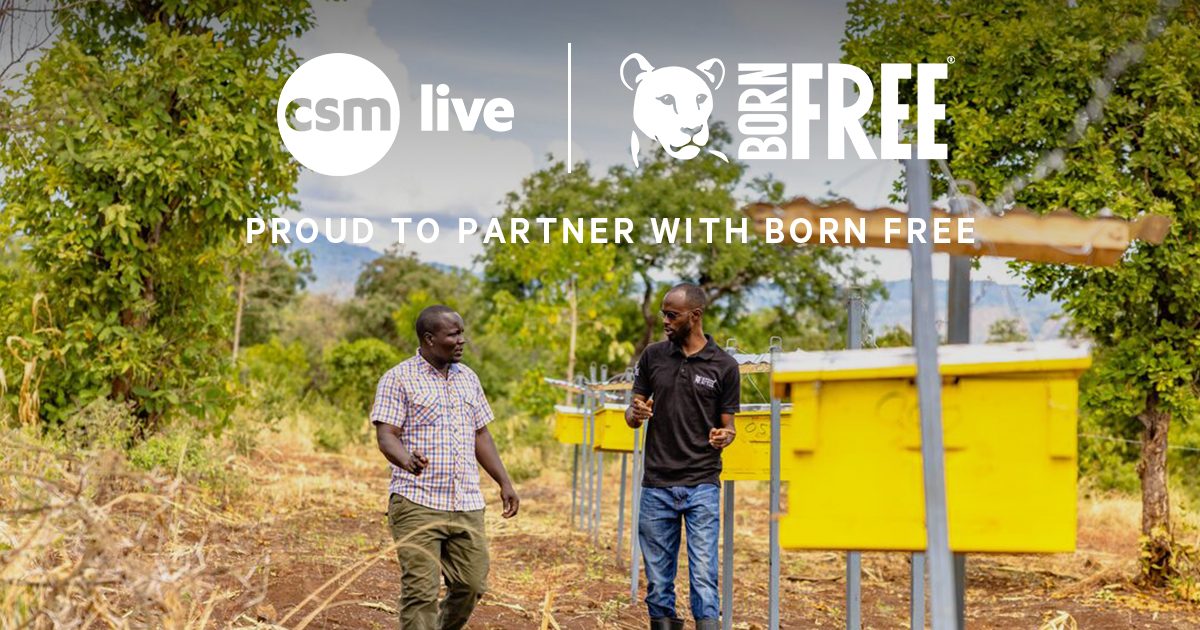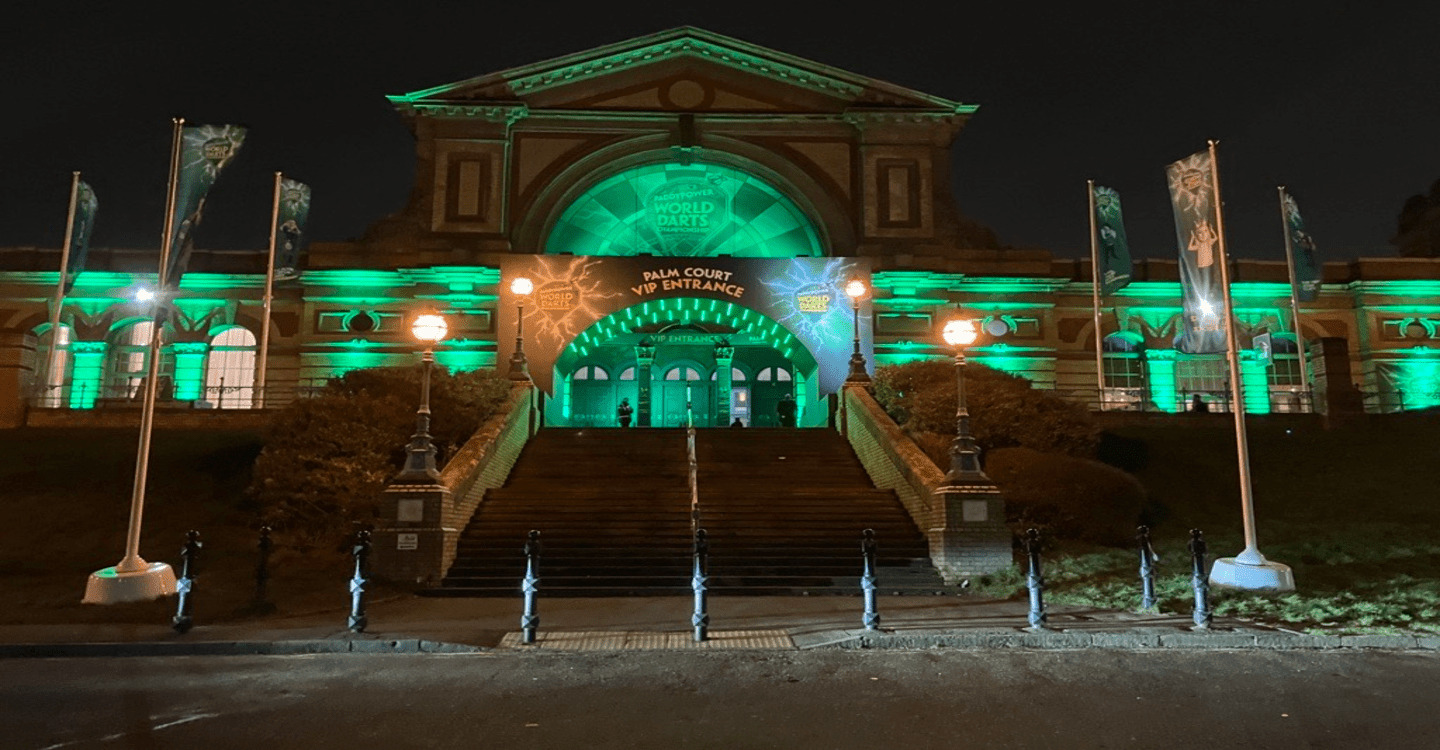BORN FREE CAMPAIGNS FOR A FUTURE WHERE ANIMALS AND PEOPLE CO-EXIST AND WHERE THREATENED AND ENDANGERED SPECIES ARE PROTECTED FOR GENERATIONS TO COME.
WHO ARE BORN FREE?
The Born Free Foundation, founded in 1984 by world-renowned actress Dame Virginia McKenna, the late Bill Travers MBE, and their eldest son Will Travers OBE, is guided by the unwavering principle that every individual animal matters. The charity’s mission is to ensure that all wild animals, whether in captivity or in the wild, are treated with compassion. Born Free opposes the exploitation of wild animals in captivity and campaigns to keep wildlife in the wild.
Born Free’s work is concentrated on four key pillars of rescue and care, conservation, policy, and education. The foundation works tirelessly to rescue vulnerable wild animals from appalling conditions where they have been confined, exploited, or abused and then rehabilitates and cares for them. It runs conservation projects across the world which focus on protecting threatened species and their natural habitats while developing ‘Compassionate Conservation’ solutions that enable people and wildlife to live together peacefully. The organisation works nationally and internationally with governments, partners, and decision-makers to develop policies and drive positive change for animal welfare and wildlife conservation. Born Free also provides education programmes in the UK, Kenya, Ethiopia, and South Africa that inspire respect for animals and the natural world.
WHY BORN FREE?
The organisation is not only known for their incredible campaign work and helping drive positive changes in animal welfare, but also for rescuing more than 200 exploited and abused animals, 47 of which are big cats that they are now caring for under their lifetime care initiative.
Through innovative initiatives like the construction of SMART predator proof bomas – which protect livestock from overnight attacks by large carnivores, including lions – they have helped support 5000 community members in Amboseli, Kenya, in collaboration with Kenya Wildlife Service (KWS). Born Free has helped protect more than 100 black rhinos and white rhinos in Meru, Kenya, and not a single rhino has been poached since 2019. Born Free’s initiatives saw 20 new lion cubs born in Meru, Kenya, in 2022/23 and the number of tigers in India has doubled since Born Free founded the Satpuda Landscape Tiger Partnership – a network of local conservation organisation – in 2004. Born Free’s latest flagship conservation programme – initiated in 2022 – aims to increase the abundance of rare chimpanzees and gorillas in the Dja Biosphere Reserve, Cameroon, and to foster a sustainable coexistence between local people and wildlife.
CSM LIVE’S IMPACT FUNDING
We are supporting a number of high-impact solutions to help regenerate some of humanity’s natural capital. As part of our 3-pronged strategy of sea, land, and wildlife we are investing in beehive fences within the community lands around Meru National Park, Kenya.
A single elephant can destroy the sole source of a farmer’s income within minutes by trampling and consuming their crops. As a result, aggrieved farmers, many already living in poverty, and relying on crops to feed their families, will often retaliate, resulting in elephants being persecuted, tormented, and killed.
The presence of honeybees can significantly reduce conflict between elephants and communities, allowing people and elephants to co-exist peacefully, without the threat of retaliation. Beehive fences will enclose farms with hives hanging along a wire, which have proven to be effective at preventing elephant crop raids. This strategy utilises a long-standing natural relationship between bees and elephants – as elephants are afraid of bees. Furthermore, elephants will keep a safe distance from farms that keep bees, and in this way the bees protect the crops from being raided. Ultimately, the beehive fences protect elephants from being harmed, as well as providing an additional source of income for impoverished farmers who can sell beeswax, honey, and propolis.
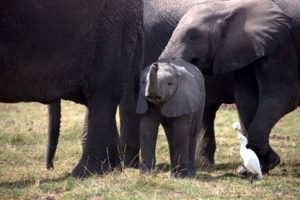

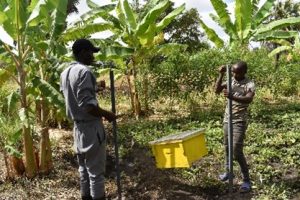

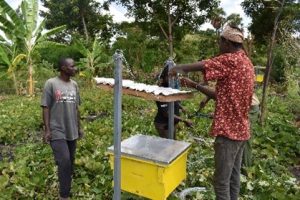

Image credit: Born Free
According to bee experts at the Food and Agriculture Organization (FAO) of the United Nations, a third of the world’s food production depends on bees. Bees are also responsible for the pollination of wild plants, which helps preserve natural habitats and biodiversity. The FAO has declared that saving bees is key to achieving food security and halting the decline of biodiversity.
Bees are vital for the pollination of crops and wild plants. Without bees, the world’s food supply would be drastically reduced. Therefore, protecting and preserving bee populations is essential for global food security.
Sadly, bee populations have been declining globally over recent decades due to habitat loss, harmful farming practices, changes in weather patterns, and the excessive use of agrochemicals such as pesticides. This in turn poses a threat to a variety of plants critical to global food security. Investing in beehive fences will increase the bee population in Kenya, helping to improve food security and preserve and restore the biodiversity of wild plants.
This will also create an added advantage and help boost the local economy by creating jobs and providing more opportunities for beekeepers. This will help to reduce the vulnerability of the agricultural system and ensure a sustainable future for Kenyan farmers. It will also benefit the environment by promoting natural pollination and improving the health of local ecosystems.
‘As elephant habitat is increasingly occupied by people and farms, crop foraging by elephants in Meru National Park, Kenya has more than tripled in the last decade. As many as half of all farmers in the region live below the poverty line and depend on the crops they grow to feed and support their families. A herd of elephants can consume and destroy an entire farm of crops in minutes – often leading to retaliatory killings. Beehive fences are simple yet incredibly effective at deterring elephants from crop farms, thus protecting them from retaliatory behaviours. Beehives are installed, hanging from posts and connected by wires, around the perimeter of the farm. Elephants do not like bees and often quickly run away at the sound of the buzzing. At the same time, beehive fences offer additional benefits both for families – bees help to pollinate the crops and honey has a high market value, bringing in additional income – and for the ecosystem, boosting the bee population. We are incredibly grateful to our partners, CMS Live, for enabling Born Free to extend this vital initiative, protecting elephant populations and improving the lives of local people.’ – Dr Nikki Tagg, Born Free, Head of Conservation.
“True environmental sustainability is a difficult feat to achieve in the events industry. We are continuously striving to reduce our operational environmental impact and implement better practices across the organisation, and we know that we still have a long way to go. To compliment the internal work we’ve been doing, we wanted to invest in high-impact biodiversity and wildlife projects along the way. We are over the moon to be working with Born Free to scale up innovative nature-inspired solutions to not only protect elephants but also increase local biodiversity and improve the resilience of local farmers’ livelihoods.” – Dominique Santini, CSM Live Sustainability Manager.
Our company vision is to purse extraordinary, aiming to lead societal change and accelerate our industry’s transition to a circular economy and improve social impact. In Born Free, we have found a partner who shares in those ambitions. We are particularly excited to be working and supporting a foundation and project of this innovative solution and worldwide support. We are confident that this project will have a lasting, positive impact on the environment, economy, and health of the local community.

